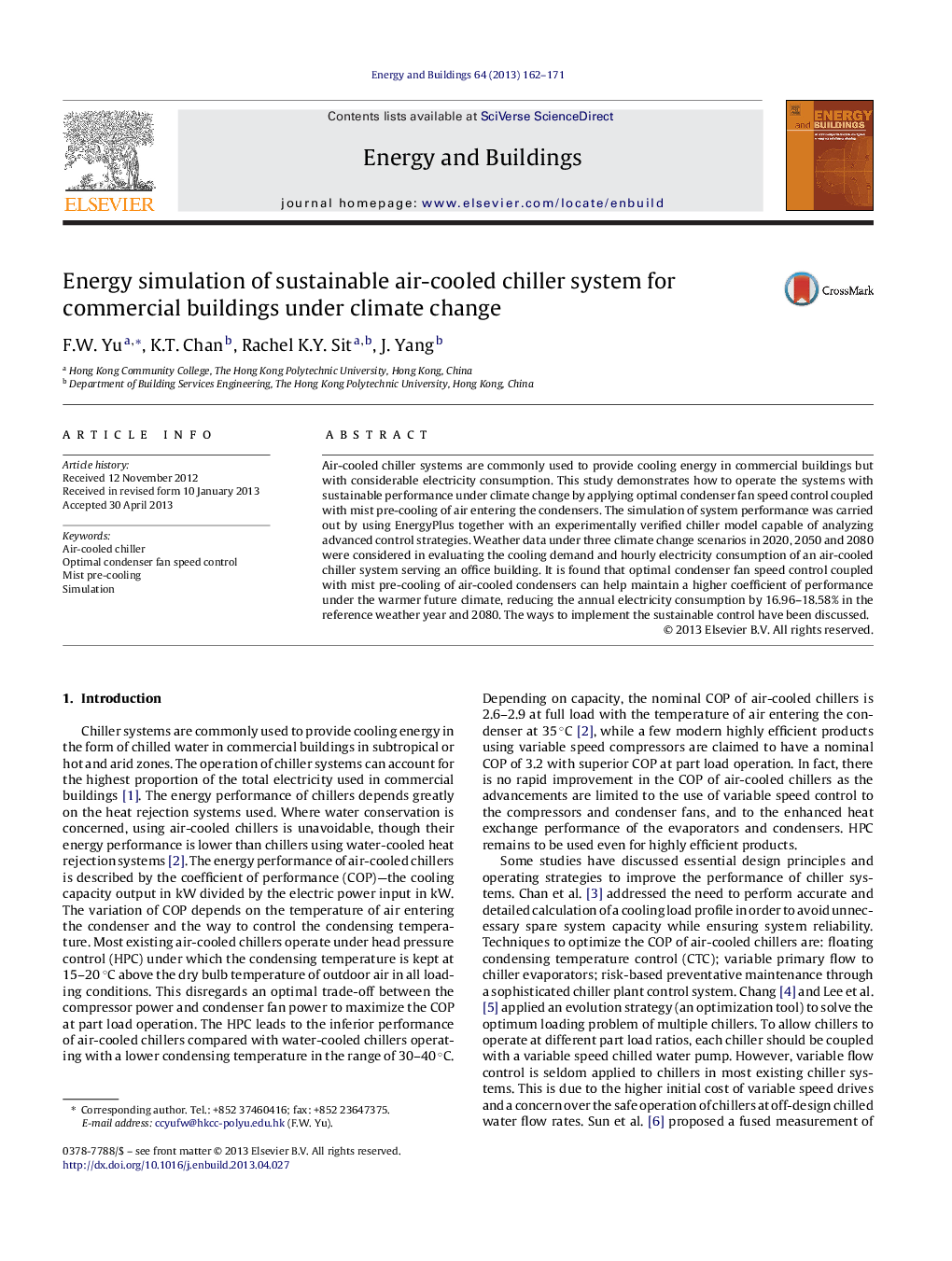| Article ID | Journal | Published Year | Pages | File Type |
|---|---|---|---|---|
| 263392 | Energy and Buildings | 2013 | 10 Pages |
•Sustainable performance of air-cooled chiller system was studied under climate change.•EnergyPlus and a validated chiller model were used to model an office building and analyze advanced control strategies.•Weather data in 2020, 2050 and 2080 were forecasted to evaluate the cooling demand and electricity use of the system.•Optimal condenser fan speed control and pre-cooling of outdoor air bring electricity savings by 16.96–18.58% in the current year and 2080.
Air-cooled chiller systems are commonly used to provide cooling energy in commercial buildings but with considerable electricity consumption. This study demonstrates how to operate the systems with sustainable performance under climate change by applying optimal condenser fan speed control coupled with mist pre-cooling of air entering the condensers. The simulation of system performance was carried out by using EnergyPlus together with an experimentally verified chiller model capable of analyzing advanced control strategies. Weather data under three climate change scenarios in 2020, 2050 and 2080 were considered in evaluating the cooling demand and hourly electricity consumption of an air-cooled chiller system serving an office building. It is found that optimal condenser fan speed control coupled with mist pre-cooling of air-cooled condensers can help maintain a higher coefficient of performance under the warmer future climate, reducing the annual electricity consumption by 16.96–18.58% in the reference weather year and 2080. The ways to implement the sustainable control have been discussed.
